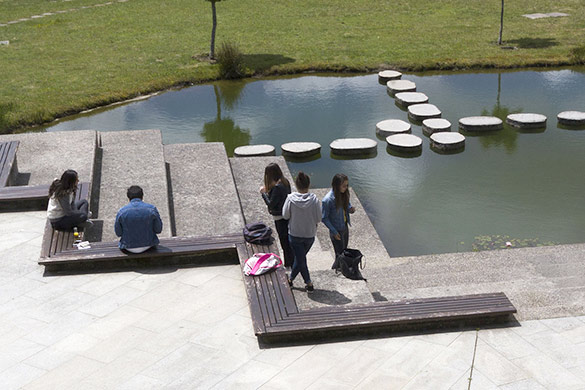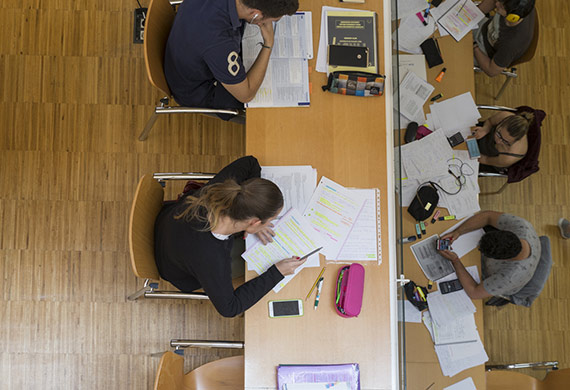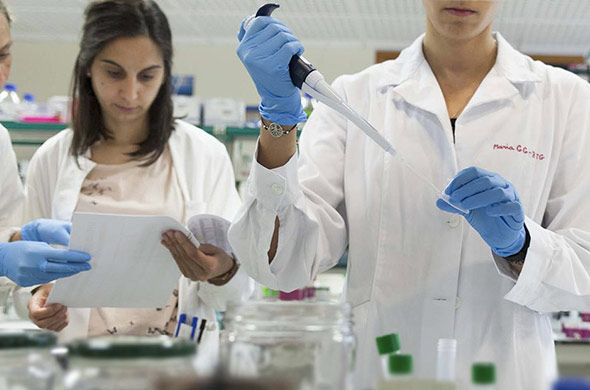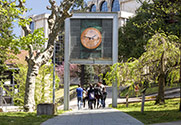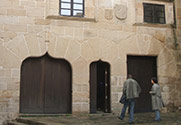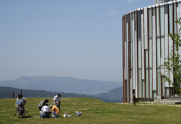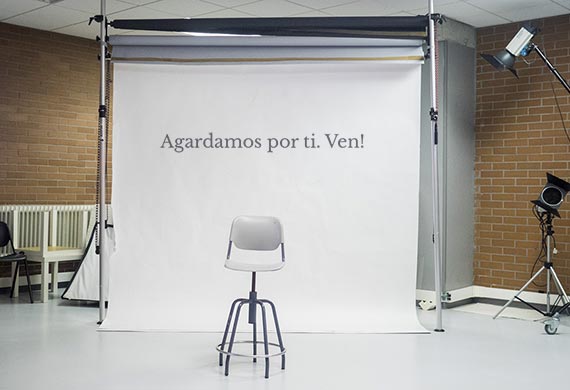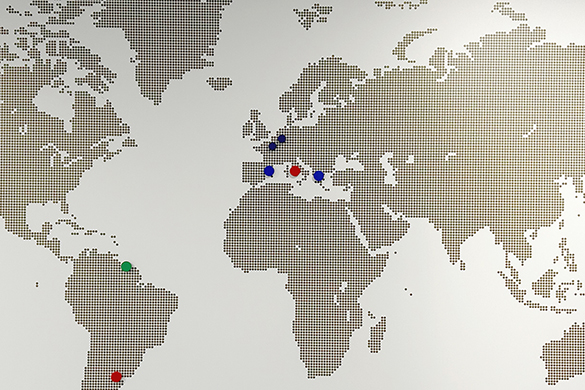Presentation

The Baccalaureate of Excellence in Science and Technology (STEMbach) allows students to deepen their mathematical and basic skills in science and technology, through the elements and procedures of research and scientific methods, in a rigorous, orderly and critical way, as well as in the development of their own research.
STEMbach provides an organisational context in which the most motivated students will be able to deepen their studies and the teaching staff responsible for the different subjects will be able to achieve excellence in knowledge, with a methodology based on research as an essential principle, carry out practical work to learn about the real applications of science and technology, and acquire an up-to-date and autonomous training that will stimulate them for their future university studies.
The student to be incorporated into the STEMbach:
- They will take an extracurricular STEM subject, in the 1st and 2nd years of Baccalaureate, which may be based on the study of one or more subjects related to this area or have an interdisciplinary approach, with an orientation towards working on improving communicative and everyday competences. It will have a weekly teaching load of 2 or 3 hours.
- They will develop a research project in the second year of the baccalaureate, related to the subject or subjects of reference of this baccalaureate.
- They will carry out complementary formation activities of a minimum duration of 20 hours over the two courses, organised by the centre in collaboration with universities, research bodies or organisations or researchers of recognised competence; as well as conferences, workshops or projects.
Specific Objectives
- To promote the vocation of students towards scientific and technological research, through a methodology that facilitates their incorporation and adaptation to university education, taking into account the gender perspective.
- To encourage a scientific, rigorous, orderly and critical mentality.
- Facilitate the development of transversal competences such as creativity, a sense of initiative and entrepreneurship, problem solving, teamwork, critical thinking and global citizenship in the students' learning process.
- Improvement of communicative and expressive skills (oral and written), both in the co-official languages and in the foreign languages present in the educational stage, with emphasis on scientific communication and dissemination.
- Work in contexts that favour the full development of digital competences.
- To provide a closer relationship between teaching staff and students in order to carry out research side by side, facilitating effective and increasingly autonomous student learning.
Organisation of teaching
STEMbach comprises two academic years corresponding to the first and second year of the stage and will last for a minimum of two years. Students who join this baccalaureate in the first year are guaranteed continuity in the second year, in the event of promotion. In addition, students will study, for all purposes, any of the modalities (Sciences, Humanities and Social Sciences or Arts) of the baccalaureate.
The basic methodological principle of the STEMbach is to encourage scientific thinking and the practical approach of enquiry and problem solving, through the carrying out of a research project. In this way, students will integrate, as part of their formative development, competences that allow them to elaborate, present and argue in a reasoned way these works as a result of the implementation of a scientific methodology.
Investigation project
STEMbach includes a research project that must be co-directed by a teaching staff member belonging to a university department or research entity. This work will be subject to a public defence before a panel which will include a person from the research entity or university department collaborating in the project, different from the person co-directing the work.
This research project will be a useful learning tool for students to start their research, writing and oral presentation activities. From a methodological perspective, it will achieve the objective of a practical training in contents, the initiation to research and will allow them to experiment with different methods of research or analysis, favour critical and creative thinking, the interest in research, technology and innovation and the capacity for analysis and reflection, among others.
The research project can be on any field of knowledge and can be carried out individually or collectively, in this case the number of participants will not exceed 4.
The project must be co-directed by a teacher belonging to a Galician university department or research entity and will be supervised by teachers who teach STEM subjects.
The project will have, at least, the following sections: title page, introduction, contextualisation and justification of the research carried out, materials and methods, results and conclusions (including a reflection on the research process) and a proposal for continuity; it must have a maximum length of 10,000 characters with spaces (not counting annexes) in the case of being individual and up to 20,000 if it is collective.
Prior to the start of the second year, the evaluation and qualification criteria will be made public and will be based on the process, the written report and the oral presentation. This exposition will have a weight of 30% of the final qualification assigned to the project.
The students will carry out a defence of the work in a public session and in school period before the 1st of May of the academic year. It will have a maximum duration of 15 minutes in which the work carried out, the methodology applied, the content and the conclusions will be presented. Afterwards, there will be a 15-minute discussion period for any questions that may be raised by the evaluation committee.
This committee will be made up of the head teacher of the educational centre or the person delegated by him/her, the programme coordinator and a person from the research entity or university department collaborating in the project, different from the person who co-directs the work.
You can find more information about the project on the website of the Xunta de Galicia.
Further information
Vice-Rectorate for Students and Employability
Miralles Building
As Lagoas, Marcosende
+34 986 813 586
stembach@uvigo.es
